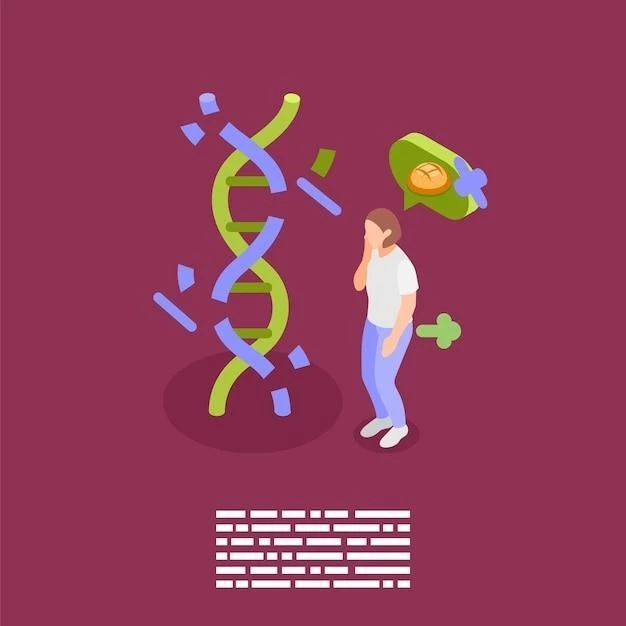Symptoms of CHARGE Syndrome
CHARGE syndrome presents various clinical signs․
Common Clinical Manifestations
Common clinical manifestations of CHARGE syndrome include craniofacial abnormalities‚ heart defects‚ growth delays‚ hearing loss‚ and vision impairments․ Individuals may also experience respiratory and gastrointestinal issues‚ as well as developmental delays․
Impact on Different Body Systems
CHARGE syndrome can affect various body systems‚ including the respiratory‚ cardiovascular‚ gastrointestinal‚ and musculoskeletal systems․ Neurological complications may arise‚ along with endocrine abnormalities․ The syndrome often requires comprehensive medical management to address these multifaceted impacts․
Treatment Options for CHARGE Syndrome
Management involves a multidisciplinary approach catered to individual needs․
Multidisciplinary Approach
A multidisciplinary approach in treating CHARGE syndrome involves coordination among various healthcare professionals such as geneticists‚ otolaryngologists‚ audiologists‚ speech therapists‚ and developmental specialists․ This collaborative effort ensures comprehensive care tailored to the complex needs of individuals with CHARGE syndrome․
Surgical Interventions
Surgical interventions may be necessary for correcting craniofacial abnormalities‚ addressing heart defects‚ and managing complications such as choanal atresia in individuals with CHARGE syndrome․ Otolaryngologists and pediatric surgeons play vital roles in planning and performing these surgical procedures to improve health outcomes․
Therapies and Supportive Care
Therapeutic interventions‚ including speech therapy‚ physical therapy‚ occupational therapy‚ and educational support‚ form key components of the comprehensive care plan for individuals with CHARGE syndrome․ These therapies aim to enhance communication skills‚ motor abilities‚ and overall quality of life․ Additionally‚ supportive care involving nutrition management and psychological support is essential for optimal well-being․
Genetic Causes of CHARGE Syndrome
CHARGE syndrome is associated with specific genetic mutations․
Genetic Mutations Associated with CHARGE Syndrome
CHARGE syndrome is primarily linked to mutations in the CHD7 gene‚ which plays a crucial role in embryonic development․ These genetic alterations impact various systems‚ contributing to the diverse clinical features observed in individuals with CHARGE syndrome․ Understanding these genetic mutations is essential for diagnosis and management․
Inheritance Patterns and Genetic Counseling
CHARGE syndrome typically arises from de novo mutations‚ with a low recurrence risk in families․ Genetic counseling is crucial for affected individuals and families to understand the inheritance patterns‚ discuss the risk of recurrence‚ and make informed decisions regarding family planning and genetic testing․
CHARGE Syndrome in Children
Children with CHARGE syndrome face unique developmental challenges․
Developmental Milestones and Challenges
Children with CHARGE syndrome may experience delays in achieving developmental milestones such as motor skills‚ language development‚ and social interactions․ Early intervention programs and specialized therapies are crucial in supporting these children to overcome challenges and reach their full potential despite the complexities associated with the syndrome․
Educational Strategies and Support Services
Individualized educational plans and access to specialized support services are vital for children with CHARGE syndrome to optimize their learning potential․ Collaborating with educators‚ therapists‚ and caregivers to implement tailored strategies can enhance educational outcomes and provide a supportive environment that meets the unique needs of these individuals․
Management of Hearing Loss in CHARGE Syndrome
Hearing loss requires specialized care and interventions in CHARGE syndrome․
Types of Hearing Loss in CHARGE Syndrome
Hearing loss in CHARGE syndrome can be conductive‚ sensorineural‚ or mixed in nature․ The diverse types of hearing loss present challenges in management and require tailored approaches to address specific deficits․ Audiological assessments are crucial in determining the appropriate interventions for individuals with CHARGE syndrome․
Hearing Aids and Assistive Devices
Hearing aids and assistive devices play a crucial role in managing hearing loss in individuals with CHARGE syndrome․ These devices help optimize auditory function and improve communication abilities․ Audiologists work closely with patients and their families to select‚ fit‚ and adjust hearing aids to best meet the individual’s needs and enhance quality of life․
Vision Problems Associated with CHARGE Syndrome
Vision abnormalities are common and impactful in CHARGE syndrome․
Ocular Anomalies and Vision Impairments
Individuals with CHARGE syndrome often experience a range of ocular anomalies such as coloboma‚ optic nerve hypoplasia‚ and refractive errors‚ leading to vision impairments․ Ophthalmologic evaluation and interventions are essential in managing these conditions to preserve visual function and enhance quality of life for affected individuals․
Ophthalmologic Interventions and Care
Ophthalmologic interventions‚ such as corrective lenses‚ surgical procedures for colobomas‚ and visual aids‚ are crucial in addressing vision impairments in individuals with CHARGE syndrome․ Regular eye exams and specialized care by ophthalmologists help in managing ocular conditions effectively‚ promoting visual health and function․
CHARGE Syndrome Awareness and Support
Raising awareness and ensuring support for individuals with CHARGE syndrome․
Advocacy Organizations and Resources
Advocacy organizations and resources offer crucial support and information for individuals and families affected by CHARGE syndrome․ These organizations provide guidance‚ access to services‚ and a platform for advocacy to improve awareness‚ research‚ and care for individuals living with CHARGE syndrome․
Support Networks for Individuals and Families
Support networks offer a sense of community and understanding for individuals and families navigating the challenges of CHARGE syndrome․ Connecting with others facing similar experiences provides emotional support‚ shared resources‚ and a platform for mutual encouragement and empowerment․

Research Updates on CHARGE Syndrome
Stay informed about the latest advancements in CHARGE syndrome research․
Current Studies and Breakthroughs
Explore ongoing studies and recent breakthroughs in understanding and managing CHARGE syndrome․ Research efforts focus on improving diagnosis‚ treatment strategies‚ and quality of life for individuals impacted by this complex condition․
Future Directions in CHARGE Syndrome Research
Future research in CHARGE syndrome aims to further unravel genetic complexities‚ enhance therapeutic approaches‚ and improve clinical outcomes․ Advancements in technology‚ genetic sequencing‚ and interdisciplinary collaborations offer promising avenues for continued progress in understanding and addressing this rare genetic disorder․
